CHAPTER ONE
How an African Bishop Invented Europe
 n April 30, in the year AD 418, the Roman Empire was in decline. The Roman people no longer shared the beliefs of their forefathers who had built the empire. Indeed, by the year 418, the empire had too many different kinds of people with too many different kinds of beliefs to sustain Roman civilization. Now, in the absence of a common purpose, there was nothing to rally all the different people against the government corruption, barbarian invasions, crime, and the steep decline in public morals that would inevitably destroy the empire in little more than fifty years. Rome was falling one stone at a time, only the people didnt know it. Nobody realized that the Roman Empire had been built by harnessing the selfish desires of men for a common purposeto dominate the world. Nobody, that is, except for an African bishop named Augustine.
n April 30, in the year AD 418, the Roman Empire was in decline. The Roman people no longer shared the beliefs of their forefathers who had built the empire. Indeed, by the year 418, the empire had too many different kinds of people with too many different kinds of beliefs to sustain Roman civilization. Now, in the absence of a common purpose, there was nothing to rally all the different people against the government corruption, barbarian invasions, crime, and the steep decline in public morals that would inevitably destroy the empire in little more than fifty years. Rome was falling one stone at a time, only the people didnt know it. Nobody realized that the Roman Empire had been built by harnessing the selfish desires of men for a common purposeto dominate the world. Nobody, that is, except for an African bishop named Augustine.
For many years, Augustine had waged a battle of ideas against an Irish monk named Pelagius. But this wasnt just any battle of ideas. These ideas had the power to transform civilizations. These ideas had the power to give mankind a new purpose and a new civilization. On April 30, 418, after followers of the Irishman rioted in Rome, the emperor resolved to settle the score between Augustine and Pelagius once and for all. It was one of the most important decisions a man has ever made. The emperor was about to condemn Pelagius and make Augustines ideas on God and man the law. He was about to alter the course of human history in ways no man had ever dared to imagine. A new civilization was coming.
Aurelius Augustinus, or Augustine, was born on November 13, 354, in the African town of Thagaste. Today, Thagaste is the town of Souk Ahras, Algeria. The province that the Romans named Africa occupied a relatively small area of land that now cuts across northeastern Algeria, northern Tunisia, and the western coast of Libya. And from the Mediterranean coast looking north, Roman Africa faced Sicily. The native people who lived in this region were called Afri. The Romans formed an adjective by adding the Latin suffix ca and called the land Africa, a name that later came to describe the entire continent. The Afri had light skin, fair hair, and were probably European in origin. Augustine himself was a Berber, which are an indigenous, light-skinned people of North Africa.
Although the journey from Rome to Africa took only a few days by ship, Africa was a very different world from Rome. Whereas Rome was a cosmopolitan mix of people and ideas, Africa was seen by many Romans as a cultural backwater. It had long been important to the empire for its agriculture. Commonly called the granary of Rome, Africa fed the Eternal City by exporting grain and olive oil. Life in Africa was difficult for most, even brutal. The small towns and the agricultural estates they served were ruled by men who were more like mafia godfathers than landlords, and the peasant farmers who worked the land were their serfs. The lives of these peasant farmers were marked by servitude, hunger, beatings, and extreme poverty with little hope of doing better. Their surplus harvests went to their Roman-African landlords for export. But they could at least be grateful for not being one of the many slaves in Africa that lived at the pleasure of their masters while toiling as domestic servants and field laborers.
Augustine, however, was neither a peasant nor a slave. He was born a Roman citizen. Augustines mother was a devout Roman Catholic named Monica. She was born to an affluent, Roman Catholic family in Thagaste around the year 331. By all accounts, she was a well-behaved and obedient daughter, except for an incident involving the family wine cellar. As a girl, Monica began to steal sips of her parents wine. Soon she found herself stealing entire cups of wine and getting drunk. She thought no one was looking until one day she was shamed by a slave girl. One of the familys slave girls, a girl who was about Monicas own age, saw what she was doing and mocked her for her gluttony. And having been shamed by a slave, Monica never drank again.
Monica married a pagan named Patricius while she was perhaps still in her teens. Patricius, on the other hand, wasnt in his teens. He was closer to forty. Like most Roman marriages, their marriage was arranged by their families. But even with an arranged marriage, Monica couldnt choose her in-laws. She got off to a bad start with her mother-in-law because some of the familys slaves had spread rumors that Monica didnt like Patricius mother. When Patricius mother discovered what the slaves had done, she demanded Patricius punish them. So Patricius gave each a beating and harmony was restored.
Patricius was a decurion, which was a civil servant that acted as city councilor and tax collector. Despite his lofty title, Patricius wasnt rich. He owned a small amount of land and held a modest number of slaves. Together, he and Monica had at least three children. Monica gave birth to Augustine when she was twenty-three years old. Augustine had at least one brother named Navigius, who was likely his elder; and he had at least one sister whose name and age are lost to history.
Although Patricius was a pagan, Monica was determined to raise Augustine and his siblings in the Catholic faith. She devoted herself entirely to her children, praying for them constantly and teaching them the Christian virtues of faith, hope, and love. She wanted desperately for her children to be baptized, but Patricius always said no. He finally consented to Augustines baptism when his son became gravely ill and it looked as though he might die. We can just imagine Monica, this devoutly Catholic mother, pleading with her pagan husband to allow her dying little boy to be baptized. Fortunately for the family, Augustine survived. And in turn, Patricius canceled the baptism.
Patricius revered his wife, but he was far from an ideal husband. He cheated on Monica and he had a violent temper. He almost certainly beat his children. The abuse must have been hell for Augustine and his siblings, the terror and shame of the beatings, the unbearable guilt of watching their mother cry for her children as though this pageant of blood and tears was somehow their fault. Yet of all the husbands and fathers in Thagaste, Patricius was one of the best. He could, at times, be very generous with Monica. Moreover, unlike almost every other husband in town, he never beat his wife. This was so uncommon that the other wives would come to Monica with their bruised faces and bloodied lips for advice on how not to get beaten by their husbands. She half-jokingly told them to keep their mouths shut when their husbands were in a bad mood.
Augustine grew to despise his father, and in later years, he praised Monica for striving to make God his father rather than Patricius. Nevertheless, it was Patricius who was responsible for Augustines education. An education was an expensive and uncommon luxury in those days. Patricius took great pride in being able to send his son to school, first sending his son to school in their hometown of Thagaste and then to Madaura, a university town some twenty miles away. Unfortunately, the money ran out when Augustine was sixteen years old.

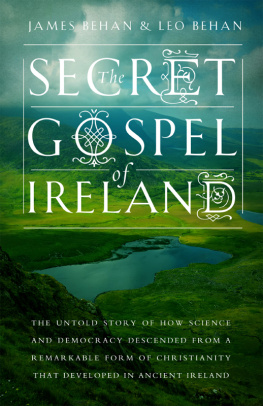

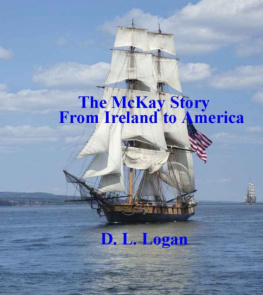

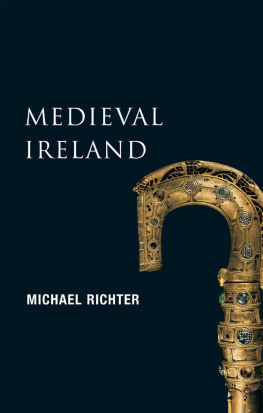
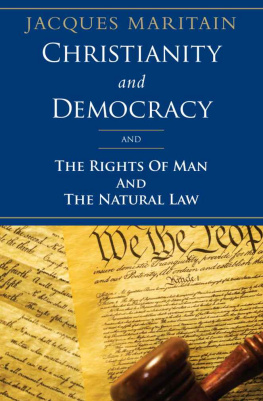
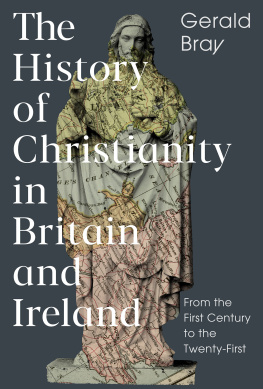
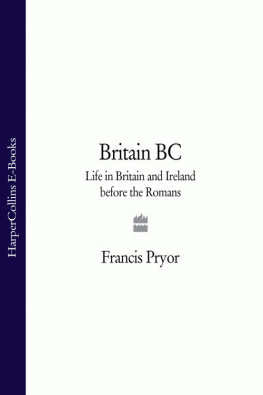
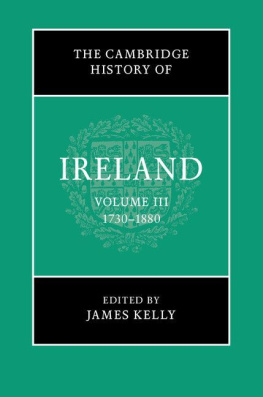



 n April 30, in the year AD 418, the Roman Empire was in decline. The Roman people no longer shared the beliefs of their forefathers who had built the empire. Indeed, by the year 418, the empire had too many different kinds of people with too many different kinds of beliefs to sustain Roman civilization. Now, in the absence of a common purpose, there was nothing to rally all the different people against the government corruption, barbarian invasions, crime, and the steep decline in public morals that would inevitably destroy the empire in little more than fifty years. Rome was falling one stone at a time, only the people didnt know it. Nobody realized that the Roman Empire had been built by harnessing the selfish desires of men for a common purposeto dominate the world. Nobody, that is, except for an African bishop named Augustine.
n April 30, in the year AD 418, the Roman Empire was in decline. The Roman people no longer shared the beliefs of their forefathers who had built the empire. Indeed, by the year 418, the empire had too many different kinds of people with too many different kinds of beliefs to sustain Roman civilization. Now, in the absence of a common purpose, there was nothing to rally all the different people against the government corruption, barbarian invasions, crime, and the steep decline in public morals that would inevitably destroy the empire in little more than fifty years. Rome was falling one stone at a time, only the people didnt know it. Nobody realized that the Roman Empire had been built by harnessing the selfish desires of men for a common purposeto dominate the world. Nobody, that is, except for an African bishop named Augustine.